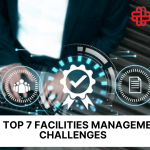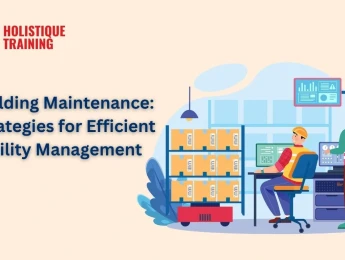As the facilities management industry evolves, the professionals' responsibilities are growing and developing. Facilities management is a crucial service for many organisations that ensures day-to-day functions and processes' full and efficient functioning.
To be successful in facilities management, one must be highly competent in a range of practical skills alongside the knowledge surrounding facilities management. This includes project management, controlling the budget, managing contracts, and prioritising the client’s goals and expectations. Combining all these critical elements will ensure maximised productivity within facilities management and guarantee that the client will be completely satisfied with the outcome.
A vital factor of facilities management is risk management. Any workplace that engages in practical tasks must strongly focus on maintaining health and safety. Risk management encompasses risk assessments, hazard identification, establishing preventative measures, and creating business continuity plans. Facilities management must comply completely with all health and safety regulations, and effective risk management will ensure this compliance.
Upon completion of this course, participants will be able to:
- Understand the vitality of effective facilities management within an organisation.
- Define and effectively manage key facilities management portfolios and assets.
- Guarantee complete compliance with industry standards and legal regulations.
- Recognise the consequences of poor facilities management and how it will negatively impact the organisation.
- Explore different practical perspectives within specific roles and apply this knowledge to increase productivity further.
- Conduct regular risk assessments and incorporate the data into detailed risk management plans.
- Examine the necessary skills, competencies and experience required for a facilities management professional.
This course is designed for anyone in an organisation involved in facilities management. It would be most beneficial for:
- Operations Managers
- Facilities Managers
- Risk Analysts
- Financial Advisors
- Contractors and Sub-contractors
- HSE Officers
- Compliance Officers
This course uses a variety of adult learning styles to aid full understanding and comprehension. Participants will review case studies of established organisations to highlight factors contributing to project success and areas for potential improvement.
They will use various learning methods, including presentations, group discussions, video materials, and practical activities. This will guarantee a full and comprehensive understanding of the taught content and all related skills. Working alongside their peers, the participants can align their existing skills and new knowledge further to ensure full confidence.
Day 5 of each course is reserved for a Q&A session, which may occur off-site. For 10-day courses, this also applies to day 10
Section 1: Fundamentals of Facilities Management
- Defining what facilities management is and investigating the ‘facilities umbrella’.
- Describing the necessity and importance of facilities management within an organisation.
- The 8 key roles facilities management plays within an organisation.
- Developing a facilities management plan and team.
- Typical skills, competencies, and responsibilities of a facilities management professional.
- Understanding the consequences of poor facilities management.
Section 2: Establishing Control
- Exploring and investigating support services requirements.
- Find a balance between out-sourcing and in-sourcing and understand when they are necessary.
- Managing contracts between contractors, the organisation, and clients.
- Examining current service levels and average market costs.
- Explaining the concepts and purposes of contracting ‘bundling’ and ‘aggregation’.
- Setting goals, objectives, and expectations with clients and contractors to ensure all parties agree with the process.
Section 3: Project Management
- Gathering and analysing cost data, including identifying spending patterns.
- Building a plan to manage and maximise the budget.
- Setting terms and conditions with the client.
- The importance of negotiation tender, and various techniques to aid in effective negotiations.
- Monitoring performance of projects and contracts and making necessary dealing with contract variations.
- Service level agreements and KPIs demystified.
Section 4: Risk Management
- Conduct a risk assessment to identify all probable risks impacting facilities management processes.
- Different methods and techniques to improve the effectiveness of risk assessments.
- Acquiring all necessary work-related permits.
- Reviewing all relevant health and safety regulations and ensuring full compliance.
Section 5: Customer Focus
- Aligning business goals and objectives with client needs and wants.
- Engaging with open communication with the client and making project adjustments as needed.
- Creating customer service strategies and action plans to ensure all satisfaction.
- Carrying out customer satisfaction research.
Upon successful completion of this training course, delegates will be awarded a Holistique Training Certificate of Completion. For those who attend and complete the online training course, a Holistique Training e-Certificate will be provided.
Holistique Training Certificates are accredited by the British Assessment Council (BAC) and The CPD Certification Service (CPD), and are certified under ISO 9001, ISO 21001, and ISO 29993 standards.
CPD credits for this course are granted by our Certificates and will be reflected on the Holistique Training Certificate of Completion. In accordance with the standards of The CPD Certification Service, one CPD credit is awarded per hour of course attendance. A maximum of 50 CPD credits can be claimed for any single course we currently offer.
- Course Code IND21-105
- Course Format Classroom, Online,
- Duration 5 days














